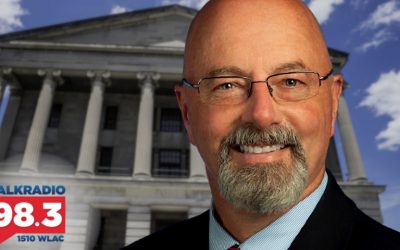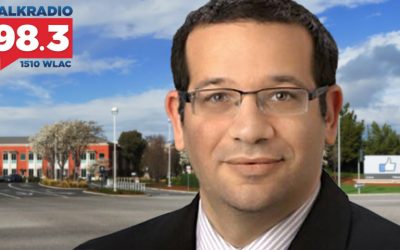Dr. Robert Epstein, founder and director emeritus of the Cambridge Center for Behavioral Studies joined Monday's episode of The Tennessee Star Report with Michael Patrick Leahy and revealed the shocking truth about how Google manipulates search engines to change...
Andy Ogles and Grant Henry Discuss Big Tech Censorship and Its Potential Status as a Public Utility
Tuesday morning on the Tennessee Star Report, host Michael Patrick Leahy welcomed Maury County Mayor Ogles and AFP’s Grassroots Director Henry to the studio to discuss Big Tech, censorship, and public utility.
Tennessee State Senator Mike Bell Talks Section 230 Reform and the Momentum Created by Trump Lawsuit
Friday morning on the Tennessee Star Report, host Michael Patrick Leahy welcomed Tennessee State Senator Mike Bell to the newsmakers line to discuss Section 230 reform, Trump’s social media lawsuit, and the momentum it’s created.
Former Trump Legal Aide and Visiting Fellow of IWF Law Center May Davis Talks Background and Big Tech
Friday morning on the Tennessee Star Report, host Michael Patrick Leahy welcomed former Trump legal aide and visiting fellow at the Independent Women’s Forum Law Center, May Davis to the newsmakers line to describe her experience and Big Tech legislation.
TechLife: State Gov. Relations Manager for the Heartland Institute Samantha Fillmore Discusses Big Tech and the First Amendment
Tuesday morning on the Tennessee Star Report, host Michael Patrick Leahy welcomed the Heartland Institutes State Gov. Relations Manager Samantha Fillmore to the newsmakers line to discuss their position on Big Tech and censorship of its users.
TechLife: New York Attorney Akiva Cohen Weighs in on Section 230 Laws and Freedom of Speech
Monday morning on the Tennessee Star Report, host Michael Patrick Leahy welcomed New York City Attorney Akiva Cohen to the newsmakers line to discuss the dynamics of Section 230 and why he feels it is not in violation of free speech on Big Tech platforms.
Maury County Mayor Andy Ogles Talks About His Letter to Governor Lee About Forced Investment to Companies that Censor
Thursday morning on the Tennessee Star Report, host Michael Patrick Leahy welcomed Maury County Mayor Andy Ogles to discuss his recent letter to the governor calling for divestment in companies that censor.







